Monday, March 16th 2020. Arrived at 00h30 in Audresselles, a small municipality in the Pas-de-Calais département [Edior's note: an administrative region equivalent to a county] where I have family ties and which lies ten kilometres from Boulogne-sur-Mer: nine restaurants here are now closed, there are 649 inhabitants but 682 registered voters – because numerous “holidaymakers” prefer to vote here.

Enlargement : Illustration 1
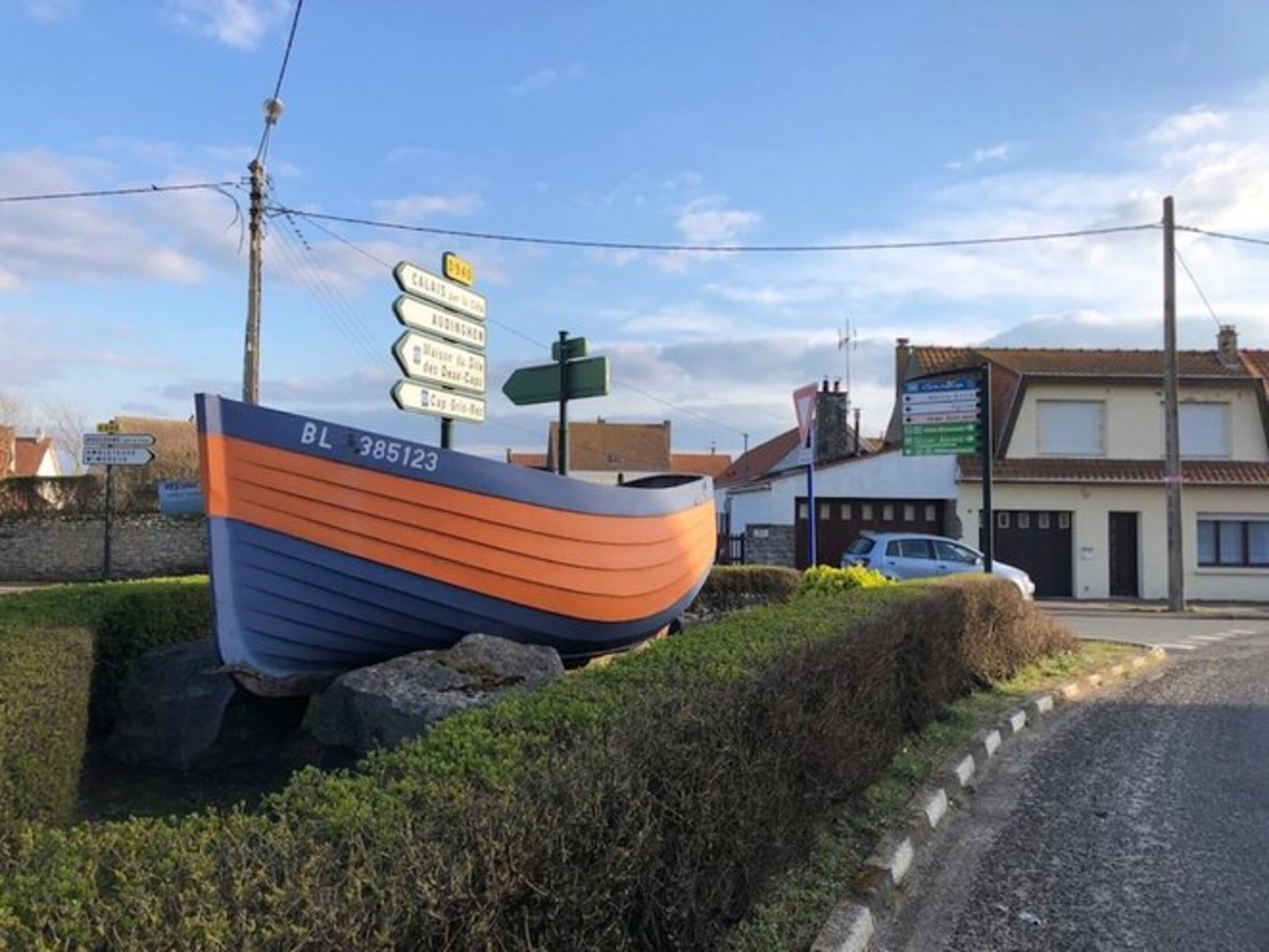
Unlike the île de Ré on the south-west Atlantic coast, or the Breton island of Groix, there’s been no sudden influx of Parisians here: there’s no deep-water port, no private sailing boats. The only vessels plying the coast are working boats based at Boulogne-sur-Mer. Here, the world of the sea is one of labour – trawlers and gillnetters. Not that of leisure, except in the summer when out come the “flobarts”, the old boats [typical of the region, sometimes known as “flobards”, and which can navigate in shallow water] of 5-6 metres that can berth on the sand, some of which have fore-and-aft sails.
My brother-in-law Antoine, who is retired from his job with a large pharmaceuticals firm, had been elected as mayor the day before [during nationwide local elections]. I left behind two sons, who have unstable jobs, each one at their respective homes. One in Vincennes [a south-east Paris suburb] and the other in Levallois [-Perret, a north-west Paris suburb]. As a freelancer, I’ve understood that I’m not going to be able to work again very soon: the sailing competitions that I cover have been cancelled. Just like the cycling races too. The previous months were already pretty tough.
Not one car has crossed the village in the past 20 minutes. All that can be heard is the neighbour’s lawnmower. It conks out. I can hear him swearing at the starter pulley. Then there’s silence again.
Tuesday, March 17th. My neighbour Brigitte, who lives alone and was already confined to her home because of health problems, calls out to me from behind a window. “Hey! Can you do a bit of shopping for me? Ricoré [a chicory-based instant coffee] in particular, eh? As many tins as possible,” she tells me.
She has just barred her cleaning lady from entering;
- “But I’m not afraid,” said the woman.
- “But I am! It’s best that you come back once all this is over. It’s nothing against you, eh,” says Brigitte calling from her window.
The cleaning lady climbs back into her car and gives a wave of the hand as she passes.
I’m waiting for my wife who is due to return from Brussels where she works in the francophone public broadcasting service, the RTBF. Belgium is getting ready for confinement. She will work via teleconferences, she told me.
Since yesterday, the fisheries committee in Boulogne called in the “80 registered boats”. France’s biggest fishing port is paralysed. The market prices have collapsed in half. No more fish packaging, no more restaurants, no fish auction anymore. The price of squid fell to 5 euros a kilo on Monday. Compared with 8 euros the day before. The 20 or so “aubettes” – the stalls that line the Gambetta quayside in Boulogne, each one corresponding to a fishing boat business – are closing one after the other.
4.45pm: Two groups of pensioners with walking sticks on the beach at Audresselles, as the tide comes back in, gather together, looking like a flock of penguins. About 8-10 nautical miles out to sea, the huge bulk of a container ship is cut out against the horizon. It’s heading towards the strait. On to Antwerp? Rotterdam? A gendarmerie van arrives at the level of the walkers, at the proper distance. “You should go back home…Tomorrow it’ll be [a fine for breaking the new lockdown rules of] 135 euros each. Have a good evening.” Heads down, the walkers get back into their cars. One woman, on her own, heads back home, a scarf over her head. “What are we heading for?” she mutters, lifting her eyes to the sky as if calling on it as a witness to the events. Plainly we are heading there, and have almost arrived.
Wednesday, March 18th. In Les Roches, the café that doubles as a tobacconist and newsstand, the proprietor, Francis, has closed the bar, piling up the tables and stools. The Molmy couple stand behind the counter; she behind that of the tobacconist and newsstand section, him behind the draught beer pumps. It was as if the life of before was about to return at any moment. A man pushes the door open and asks “La Voix du Nord?” [the regional local newspaper]. “The gentleman took the last one,” she says, indicating me with a movement of the chin.
“We only see people looking for cigarettes and the paper,” grumbles Francis. Ordinarily he’s a somewhat jovial man, nice even. But two events have come together to plunge him into an bad-tempered melancholy: the closing down of bars ordered by [French Prime Minister] Édouard Philippe on March 14th, and then on Sunday evening came the blow – the list of candidates he led for the local council, on which figured the outgoing mayor, lost the elections without any seats on the council at all.
This morning, Francis has a grudge against the Audressellois [the inhabitants of Audresselles] who have shown no “gratitude”. Should this be seen as having something to do with the electoral defeat? For Francis, not a bit of it! He was referring to his neighbour Stéphane (50 metres separate them), the greengrocer who for five years has kept the ‘Petit Casino’ shop going. For Francis, the lockdown will bring back folk to the “local little shops”.
A man who I don’t know seems to me to be standing too close. I step back. “That’s where it’s all happening,” he says, tapping his temple with his forefinger.
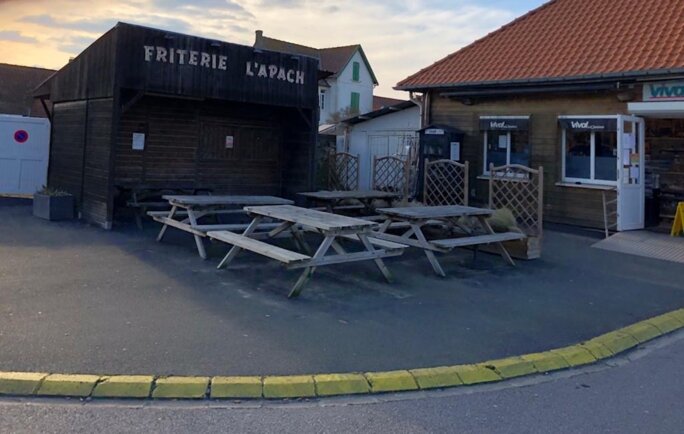
Enlargement : Illustration 2

Francis later tells me that the virus will kill his business before him: “’Going to get rough”. The few of the living in the village, who kill themselves by buying tobacco, are clearly fewer since midday Tuesday [when the lockdown restrictions on movement came into force]. Francis would have liked to follow the example of his tobacconist colleague in the neighbouring commune of Ambleteuse: “Oh yeah, him, he doesn’t muck around. He’s closed!” And then passing his hand under his chin, deep in thought, he says: “And what are we going to do for the burials?”
Then he picks up again: “They’ll see, when I’ll have definitively closed! I’m staying [open] to shift the stock. There’s for a fortune in there, you know,” he says, pointing to his storeroom. “In a week’s time I’m closing!” Meaning: it’s each one for themselves. But deep down, he knows he won’t close. Francis would help out the last remaining smoker in the village. Or the last reader of La Voix du Nord.
Jean-Michel re-reads One Hundred Years of Solitude
It was around 4pm, and a couple, aged about 60, were pushing a three-wheeled Urban Jungle buggy in which was a “five-month” Labrador the colour of fresh butter.
Meanwhile, sitting on a bench, Jean-Michel, 70, stroked the neck of his Boxer, which suddenly went to approach the novel little carriage, his tail whipping the air. Here, people aren’t quite yet on a lead, the dogs neither. “Taking a bit of air” announce the couple gayly, heading for a small pathway.
Jean-Michel, a scarf wrapped around him like a neck brace, called his dog back over. The sky was turning grey after a lovely day.
Jean-Michel was once a doctor in Paris. He says he settled in Audresselles 15 years ago. On the bench beside him was a paperback copy of [Gabriel García Márquez’s novel] One Hundred Years of Solitude. Which he is reading “for the second time”.
He warmed himself during the afternoon and was readying to go home and join some online poker games. “I live 20 metres away, in rented accommodation,” he said with a gesture of the hand.

Enlargement : Illustration 3
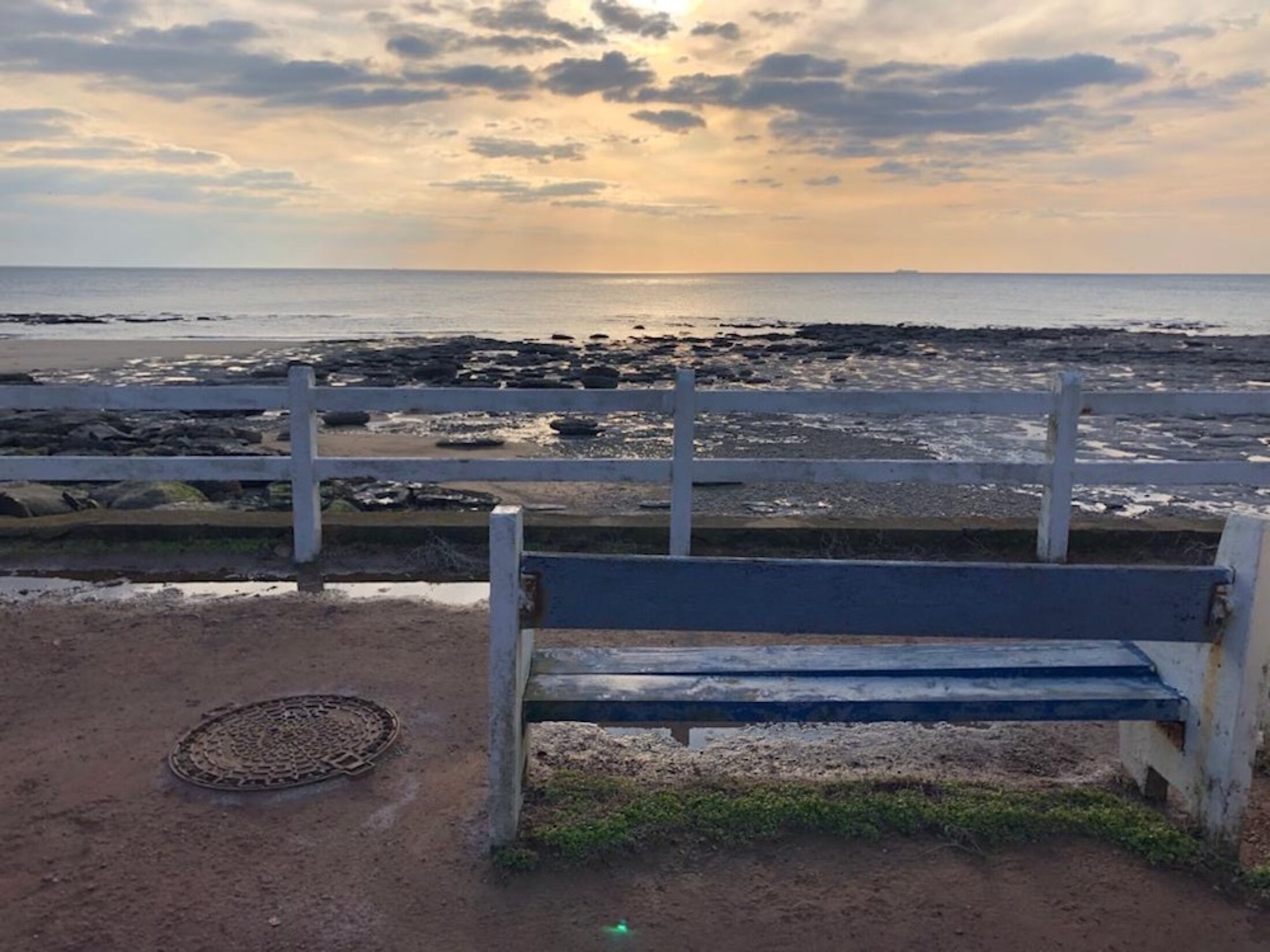
Jean-Michel told of how he settled in Audresselles after listening to a programme on radio station France Culture. What exactly was that programme about? “In fact, it said that the village was known because of the notorious “Little Joseph”, a shepherd and castrator of sheep who assassinated his victims with the same professional firm-handedness. The guy was guillotined on the place de Marquise [the main square of the district]. Then also, naturally, for Raoul de Godewarsvelde [the late Lille-born singer], who sang Quand la mer monte [When the sea comes in]. You know who he is, I imagine?” he asks with a playful tinkle in his eye. Raoul was a regular face in Audresselles and at its bistrot, Chez Léon.
I thought to myself that the contrast of the dog in its pram, García Márquez, and the testicle smasher sounded like a good start for an adventure novel.
The Boxer scraped the earth with its claws and set off into the fields. Jean-Michel raises his hand with a smile: “See you tomorrow. Perhaps…We’ll see if it doesn’t cloud over too much.”
Normally, at this time of the year, the nine restaurants around the commune have already been open for three to four weeks. My neighbour would already have started up his old John Deere, which billows smoke like an old destroyer, to pull his “flobart”, crossing the B-road and putting it in the water at low tide. Today, not a sound. Just the cheeping of birds in the trees.
Coralie, from the restaurant Le Retour des Flobarts on the place du Détroit, where just one car is parked (the old Peugeot belonging to the greengrocer), was worried: “If things don’t get better in the coming weeks, the season is done for.”
A third patrol round by the gendarmerie, travelling slowly, crossed the village heading for the sea. The first came past at 9.15am, a van of reservists from Dunkirk which stopped off at Stéphane’s store. The warrant officer: “This must be a change for you from Paris, eh?” Then, stirring his coffee: “Here people have understood, it’s not like in those neighbourhoods where a certain type of population…” He realised he’d gone too far, and came back to the subject of his mission: “No more than one trip outside per day, and don’t forget your attestation, eh?”
A jovial man with a shopping bag, and who had himself not lived through the wartime German occupation, addressed the assembly, targeting the gendarmes: “Ausweis!” Success.
Thursday, March 19th. Carole is the self-employed nurse in the village. She is the wife of Stéphane, the greengrocer who normally never closes. New opening hours: 9am to 12am and 3pm to 7pm. The daily life of Carole, in her early 50s, hasn’t really changed, as she explained by phone since the new lockdown measures of confinement. Around 15 patient visits at most per day. The only difference is that she carries out, she says, “a bit more shopping for elderly people who place their orders at the greengrocers. It was already the case because here people are elderly and don’t get out, or very little”.
According to her account, her patients already lived in a degree of physical and mental confinement. “In town, people imagine that it’s a privilege to live by the sea…but the reality is quite different: the high-street businesses here are closed three months. From November up until Easter time the weather is awful. We’re just getting past four weeks of storms.”
The rain, which is often horizontal here, has soaked the agricultural land. “And then, voilà, we see the arrival of the holidaymakers” – (a term which is synonymous here for people from Lille, a few Parisians who you can count on one hand, and many Belgians who cross the nearby border, above all Flemish) – “perhaps already infected, who come to open their holiday homes. That scares us a bit because up until today, there are no cases [of Covid-19 coronavirus] on the two communes which I cover. But until when?”, she asks anxiously.
My wife is in teleconference with her teams from 9am to 7pm. We’re in the same room, like an open space office. I bitterly regret not having brought my earphones. Having said that, I’m an expert on the subject of the programmes and schedules of the RTBF, and the dozen or so names of her colleagues.
Friday, March 20th. Francis has reopened the tobacconist-newsstand Les Roches. Yesterday was his weekly closing day. His wife is bent over what I believe is a sudoku grid at the end of the room. It’s 10.30 am. The sea is 150 metres away. We can hear it growl. On the TV set of the bar, Public Sénat [the political and parliamentary news channel] is providing background sound. One can distinguish the voice of [radical-left La France insoumise party leader] Jean-Luc Mélenchon addressing the lower house.
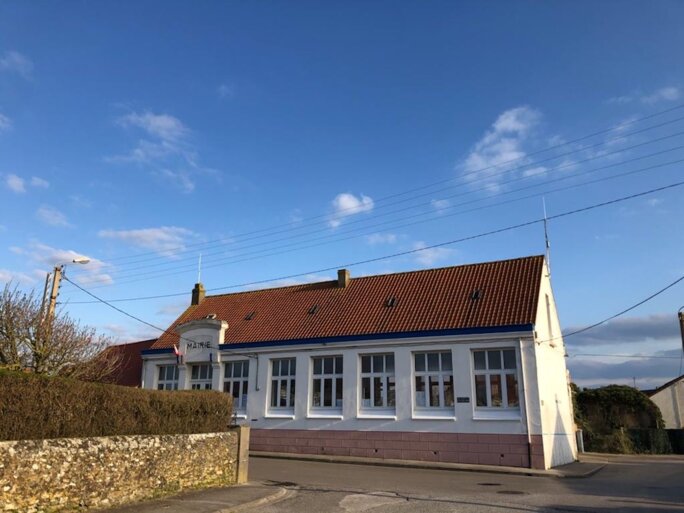
Enlargement : Illustration 4

The day before, the government had postponed the official taking up of office for the new municipal councillors. Francis says that it’s “a bugger for the municipality because the situation is going to last”. He’s almost concerned for his rival. The relations between the former mayor and he who wasn’t yet mayor were never cordial. Inexistent, even, for nearly a year.
My British neighbour has lived in the municipality for almost ten years. He’s loved by all, extremely popular. He gives English-language classes all through the year to a handful of Audressellois. The classes traditionally end with a gin and tonic and cucumber sandwiches cut in triangles.
Greg was born in the north of England. A fan of Middlesbrough Football Club, whose shirt he wears during France’s annual music festival which he organises here in his garden with his friends, English and Scottish musicians. He invites the whole village, including the elderly who are all in love with him. It’s something of a local Woodstock for us. It’s about 200 metres from my house. But I had the impression last year, early on June 22nd, that I’d walked double that on my way home. That, well that was before.
Greg had a successful career in the insurance and finance business. “It’s going to be worse than the crash in 2008,” he says about the current crisis. He lived for a long time in Kent, where he sold his house – he regrets that now – and where his daughter and grandchildren now live.
Here he is now “stateless” as he calls it with a smile. Knowing that he is a “Brexiteer”, the irony of the situation is all the sharper. “In fact, if I go back to England today, I will no longer be able to go back home, and my home today is here.” In Audresselles.
Yesterday, Thursday, it was his birthday. Coralie, the owner of the Retour des Flobards, switched her ovens back on and prepared for him two Black Forest cakes. She took them to his front door. He had tears in his eyes. At 7pm I brought him some 2015 vintage Mercury wine from the vineyards of Benoît Eschard, a box I’d put aside for the day when I might have got a fulltime job again with an editorial team. Ah, what the heck! May as well drink it now given that that day is moving into the distance.
Greg’s neighbour is tinkling with the engine of his Duster car, listening to a sketch by [French comedians] Philippe Chevallier and Régis Laspalès on radio station ‘Rires et chansons’. I can hear him chuckling.
For his birthday, Greg told me he’d listened to The Faces, Nick Cave and then the Sex Pistols. The bottle of gin didn’t survive: “I’m not going to suddenly change my habits, no?” he says, laughing. On Facebook, one of his friends posted “Happy hangover!”
Saturday, March 21st. The postponement of the municipal council meeting, which was normally due to take place behind closed doors this morning at 11am, was met with understanding from all the new councillors. “We had worked, at a distance, for the setting up of commissions and the nominations of deputy mayors,” explains Antoine Benoît, talking on the phone and now champing at the bit. “The urgency is to smash the chain of contamination, that each and everyone stays at home. Today we all have people close to us who are affected.” All the beaches along the coastline are banned to the public by a decree from the prefecture.
Jean-Yves is a self-employed fisherman. He’s around 35. His father was also a fisherman. Every morning at 2am Jean-Yves embarks on his boat Le Surcouf, a gillnetter that also raises lobsters and other sea-floor creatures from sunken pots. He returns to Boulogne between 9am and 10am. “It depends on what we catch,” he says. On the way back from Boulogne, he stops his Renault Trafic van. We talk from behind the barrier. It’s probably one of his last sorties. “No more clients, no more restaurants to supply,” he says. “The prices are tumbling, we don’t sell anything anymore. On top of that, with the weather we had hardly gone out these past three months. We don’t know what’s going to happen.”
My neighbour Janusz, also a “refugee”, who is a painter and a teacher at the Beaux-Arts school in the nearby town of Tourcoing, has hardly left his house since the previous week. He believes we’re all going to devour each other, like in the Richard Fleischer film Soylent Green, based on the novel by Harry Harrison.

Enlargement : Illustration 5
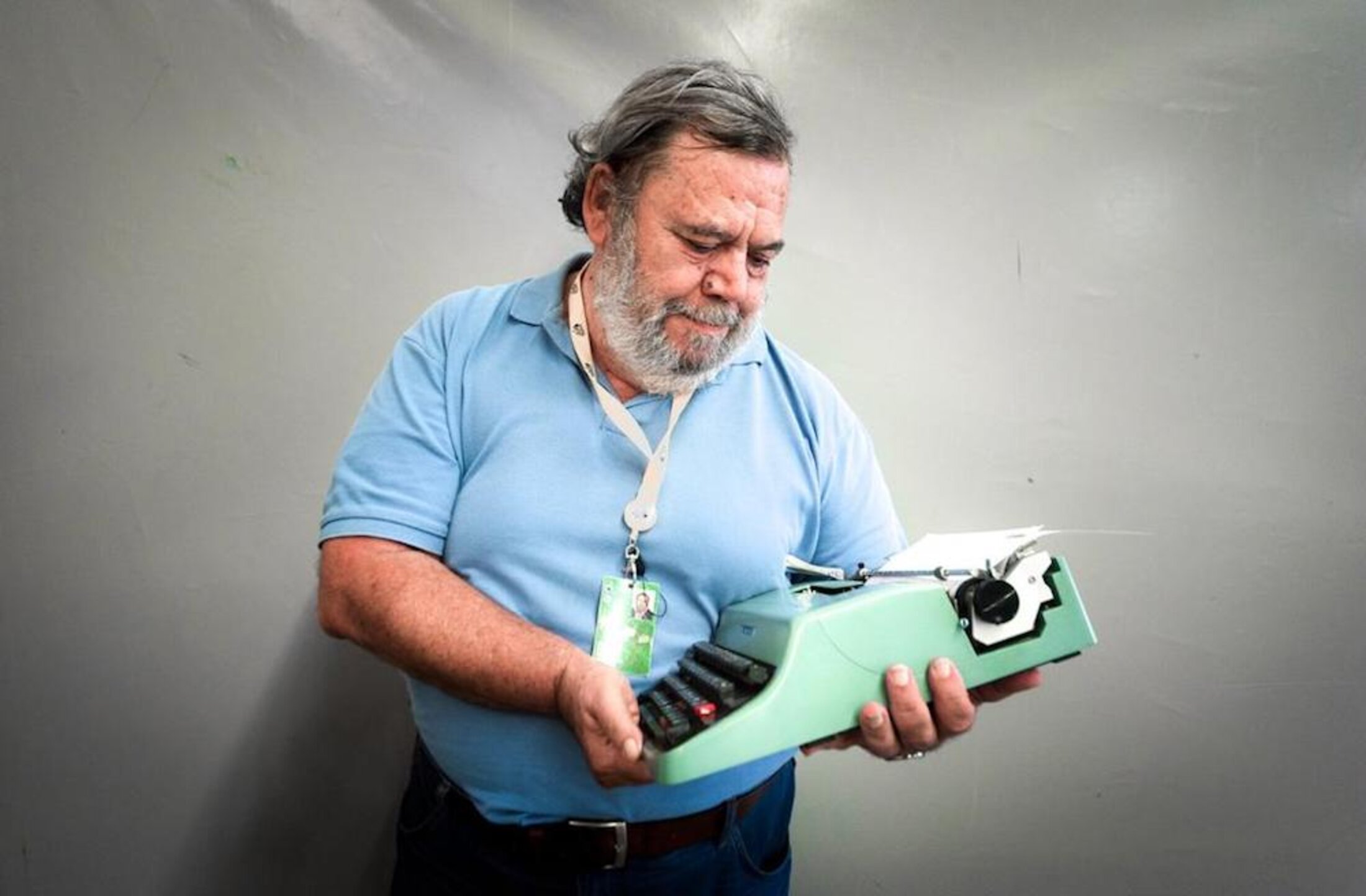
The owner of the Saint-Jean farm, in the centre of the village, an elderly woman, passed away overnight. “She went in her sleep,” I’m told by the greengrocer who is also, in a way, a sort of rural policeman. Last Sunday, she made no effort to hide her joy at seeing the incumbent mayor defeated in the elections, shaking her cane at he to whom she had, during 30 years, vented her wrath. Monsieur Le Roget, the 83-year-old former mayor, is still among us.
News of the death this morning of Gianni Mura, a sports journalist with the Italian daily La Repubblica in Milan (the city at the epicentre of the Covid-19 coronavirus epidemic in the country) sends me back into my past. Gianni, who suffered a heart attack, had every gift. His summaries were a model of clarity and intelligence, and I held his art of reporting as the very highest. He was also a formidable food critic. I spent 18 years, every summer, with him on the road during the Tour de France. I loved him as a master. My master of the world of cycling.
Outside there is a dazzling sun. From the window I see the opal sea flecked a little with white. There is no more traffic on the B-road. Nor bicycles, nor dogs, nor people.
-------------------------
- The original French version of this diary article can be found here.
English version by Graham Tearse


